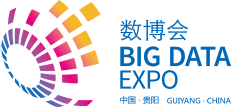Interview: 79-year-old Turing Laureate Prof. Michael Stonebraker on the “Digital Economy” and the “Metaverse”
作者: Huang Yuye 来源: Big Data Expo 编辑: Lin Xianxian 时间:2022-06-10 11:38:43
If silicon is the new oil of the future, then data is like the new silicon.
- Prof. Michael Stonebraker

▶ Prof. Michael Stonebraker, hailed as “one of the world’s foremost database experts”, is the fourth Turing Award recipient in the field of database.
The 8th China International Big Data Industry Expo kicked off online on May 26, 2022. As a special guest, Prof. Michael Stonebraker, the recipient of the 2014 ACM Turing Award and world-renowned database expert, delivered a keynote speech entitled “how to extract the most value from data assets” at the opening ceremony, sharing his brilliant insights related to data value in four aspects: cloud computing, machine learning, data migration and cloud migration.
In an exclusive interview with cbdio.com, Prof. Michael Stonebraker had a lively discussion with our correspondent on “digital economy”, “metaverse” and other hot and cutting-edge topics in the industry.
Significance of Data in Digital Economy
“If silicon is the new oil of the future, then data is like the new silicon,” said Prof. Stonebraker at the beginning of the interview, emphasizing the importance of data with a brilliant analogy. According to him, “digital economy” has multiple levels of meanings, including “elements” such as digital currency, digital B-to-B supply chain, digital services (eg. DiDi, online ordering), digital shopping and so on. Clearly, human society will develop towards comprehensive digitalization, making the services and transactions of thousands of industries more efficient and orderly. In this process, data is both the foundation and the product of digital economy, and they complement each other, gradually forming digital industry chains and building a complete digital ecology together.
When asked about the aspects in which the value of data to the development of digital economy is felt, Prof. Stonebraker said that resource sharing - which is often referred to as the sharing economy - and resource consumption - such as high-performance graphene batteries - will promote digital economy to achieve leapfrog development. Currently, the top priority for both companies and urban managers is to move towards data-driven business and to “gear up” and “fuel” the digitalization process.
Meet the World’s Major Challenges with Digital Technologies
The world is currently in a period of great development, transformation and adjustment, facing a wide range of global problems and changes. Prof. Stonebraker suggested the flexible use of digital technology to effectively address global challenges in a targeted manner. He listed the dilemmas that the world will face in the coming years, including: global warming, pandemics, wealth gaps within and beyond countries, cybersecurity, digital ethics and many other pressing issues to be solved.
“I can't help but worry now about whether we will leave a worse situation for the next generation, who will face far more intractable problems than we currently do. However, there are also reasons to be optimistic about the future, as increasingly advanced digital technologies can help humanity to solve these difficult issues.” He then added that the use of renewable energy and electric vehicles on a large scale from now on is expected to solve the problem of global warming, “As far as I understand, China is already ahead of the world in this regard, and charging piles for NEVs have been included in the country’s ‘new infrastructure’ construction plan.” And advanced digital biotechnologies, artificial intelligence and block chain-based traceability technologies will help solve the pandemic-related problem mentioned above.
Data-driven Breaking of Data Silos
Data silo is a major barrier to digital development. Prof. Stonebraker told our correspondent, “As I mentioned in my keynote speech at the opening ceremony of this year’s Big Data Expo, I think the biggest problem in transforming enterprises to become ‘data-driven’ is that most of their data is stored in independently constructed ‘data silos’. Therefore, to understand the overall picture of an enterprise’s data assets, these disparate data sets need to be integrated, and this challenging task must be addressed to capture the full value in the data assets.”
The most important part of data science is data integration. Prof. Stonebraker said that in data science projects, most of the data are not directly available for analysis because they usually exist in files, databases or various documents. Therefore, it is important to learn how to integrate and cleanse data in order to draw insights from it. “Data silos” are created based on data owners’ concerns about data security and limitations of information system design, resulting in significant barriers to data sharing and flow between different departments. “Our ultimate goal is to achieve credible data circulation and calculation through data-driven technologies, so that data scattered in different places can be united and converted into valuable information or models.”
“Metaverse” Should not Be a Product of Social Media
“Either you become a disruptor or you get disrupted by your competitors. Better emerging technologies will replace the traditional ones, and we should all invest in and use emerging technologies.” Although Prof. Stonebraker was optimistic about emerging technologies in his keynote speech at the 2022 Big Data Expo, he gave a cautious answer when asked how he viewed the “metaverse” that has been a hit around the world. “It’s too early for the metaverse to be realized.” According to Prof. Stonebraker, the current “metaverse” still remains a concept, mostly used as a marketing slogan and eye-catching stunt by social media and game makers, and such a specious “metaverse” will only make it more complicated for it to be realized.
“In my opinion, social media and game makers, as important carriers of the information market, shall be obliged to assume greater social responsibility. At the same time, they shall be bound by legal, moral and ethical controls. For example, they must deal seriously with the misinformation and false information they are currently spreading. In addition, selling of personal data for financial gain must be brought under strict regulation. Only in this way can we create a healthy and sustainable development environment for emerging digital scenarios like the ‘metaverse’.”
Each age brings forth new geniuses, shaping the future of the next generation. As an important participant in accelerating the Internet development in the 21st century, Prof. Stonebraker, who is 79 years old, has witnessed the birth and rise of a new generation of information technology such as cloud computing, big data, Internet of Things, artificial intelligence, blockchain, 5G, etc. In his view, the future world will definitely evolve into a digital civilization inscribed in history. At the end of the interview, he expressed his expectations for young people: “On the path of scientific exploration, never doubt yourself and keep trying no matter what. Know that the only way to the peak of Mount Everest is to move forward one step at a time.”



